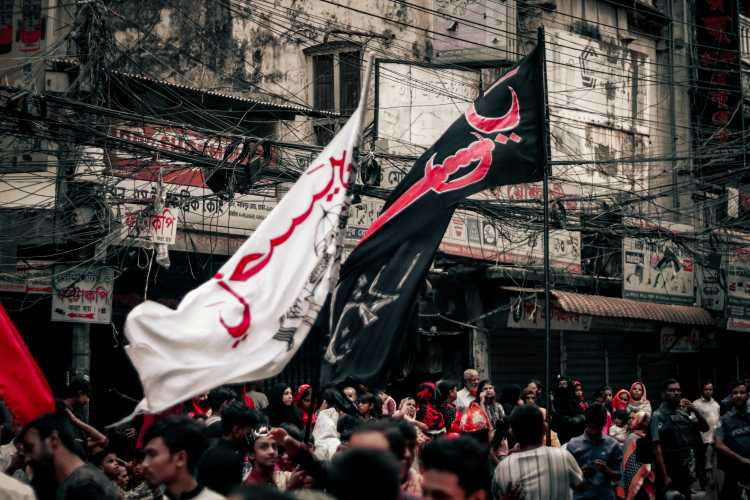Bangladesh prime minister Sheikh Hasina resigned and fled to India, following unprecedented protests triggered by demonstrations by students against job quotas. The ensuing chaos in Dhaka is troubling for India as Dhaka is critical to New Delhi’s national security strategy. Bangladesh acts as a bulwark against China’s increasing influence in South Asia.
India has a strategic interest in a stable and strong Dhaka from a trade perspective as well. The textile industry relies heavily on supply chains from across the border, and the ongoing political turmoil does not bode well for the garment industry.
READ | PLI scheme: India must build a competitive manufacturing ecosystem
Economic implications of Hasina’s ouster
Dhaka’s economy will feel the heat of the political chaos, as the country’s GDP relies heavily on garment exports. With exports valued at $50 billion, Dhaka’s garment industry significantly surpasses India’s $15 billion exports. For a country already grappling with unemployment, political uncertainty will only exacerbate the problem. Despite being one of the fastest-growing economies in the world, estimates suggest that around 18 million young Bangladeshis are looking for jobs. University graduates face higher rates of unemployment than their less-educated peers, similar to the situation in India.
Regarding India-Bangladesh trade, the two countries share a declining bilateral trade relationship. India’s exports to Dhaka amounted to $16.2 billion in the fiscal year 2022 but have witnessed a constant fall since then, dropping to $11.1 billion in FY2024. This marks a significant 31.5% decrease in exports from FY2022 to FY2024. In contrast, imports have remained relatively stable, with a modest 5.3% decrease over the same period. Bangladesh’s exports to India are concentrated in a few categories, with textiles, garments, and made-ups comprising 56% of their exports.
In trade terms, Dhaka is New Delhi’s biggest partner in the subcontinent, and India is Bangladesh’s second biggest partner in Asia after China. In October last year, India and Bangladesh began discussions on a Free Trade Agreement (FTA) to help reduce custom duties on traded goods. However, it is now unclear if and how the FTA plan will proceed under the interim Bangladeshi government.
Before Hasina’s ouster, Bangladesh was already facing severe issues, including a significant dollar shortage, hindering its capacity to purchase imports, including goods from India. This financial constraint, coupled with soaring inflation, has dampened domestic consumption, negatively impacting sales of both local and imported products.
A case of failed foreign policy
Hasina’s exit from Bangladesh politics is a blow to India’s foreign policy. India had invested heavily in maintaining relations with Hasina, but now that she is unlikely to return to power, many experts are criticising India’s strategy regarding Dhaka. With the loss of its strongest ally, India will need to regroup and establish new diplomatic ties with its neighbour.
Under PM Hasina’s rule, India-Bangladesh ties benefited greatly. Enhanced connectivity between India and Bangladesh emerged with the construction of the Maitri Setu bridge linking Tripura and Bangladesh. Rail links, such as the Bandhan and Mitali Express, were established, and air travel options between the two nations significantly increased. While India would like to maintain the status quo, failure to do so could severely impact trade and traffic between the two countries. However, the citizens of Dhaka do not have a benevolent view of India. Hostility towards India is palpable, partially due to the Citizenship Amendment Act (CAA).
Nonetheless, PM Hasina’s long tenure brought stability and economic growth to the region. Under her leadership, Dhaka transformed from one of the world’s poorest nations into one of the fastest-growing economies in the region, even outpacing India. The country’s per capita income tripled in a decade. According to World Bank estimates, over 25 million people were lifted out of poverty in the last 20 years. Her reign also saw the unveiling of ambitious infrastructure projects, such as the $2.9 billion Padma Bridge across the Ganga.
It is too early to predict Bangladesh’s immediate future. However, other leaders can learn from Hasina’s fall: economic development at the expense of democratic values and civil liberties cannot sustain in the long run.

